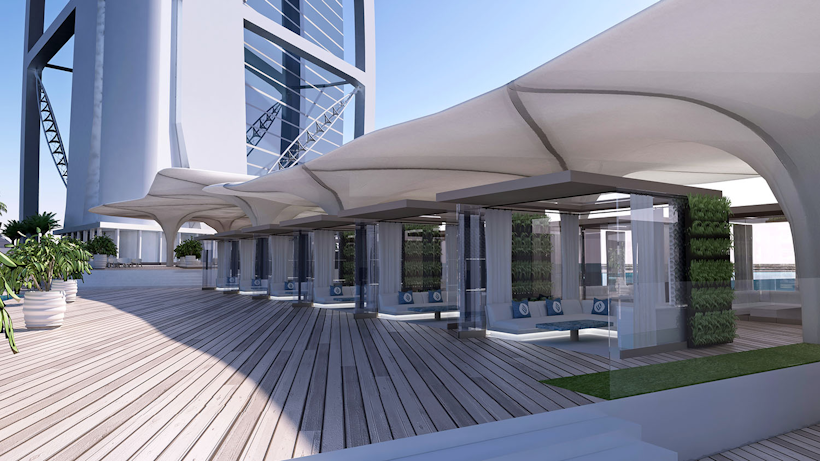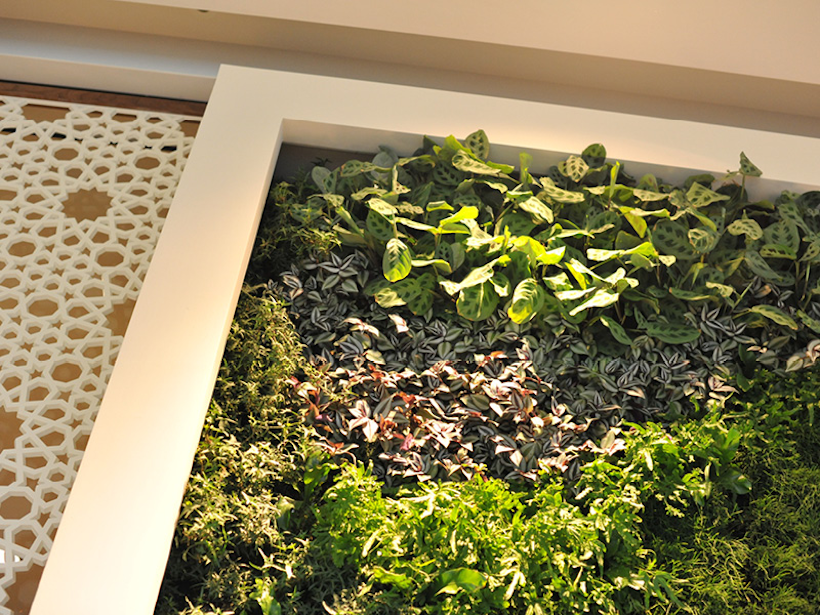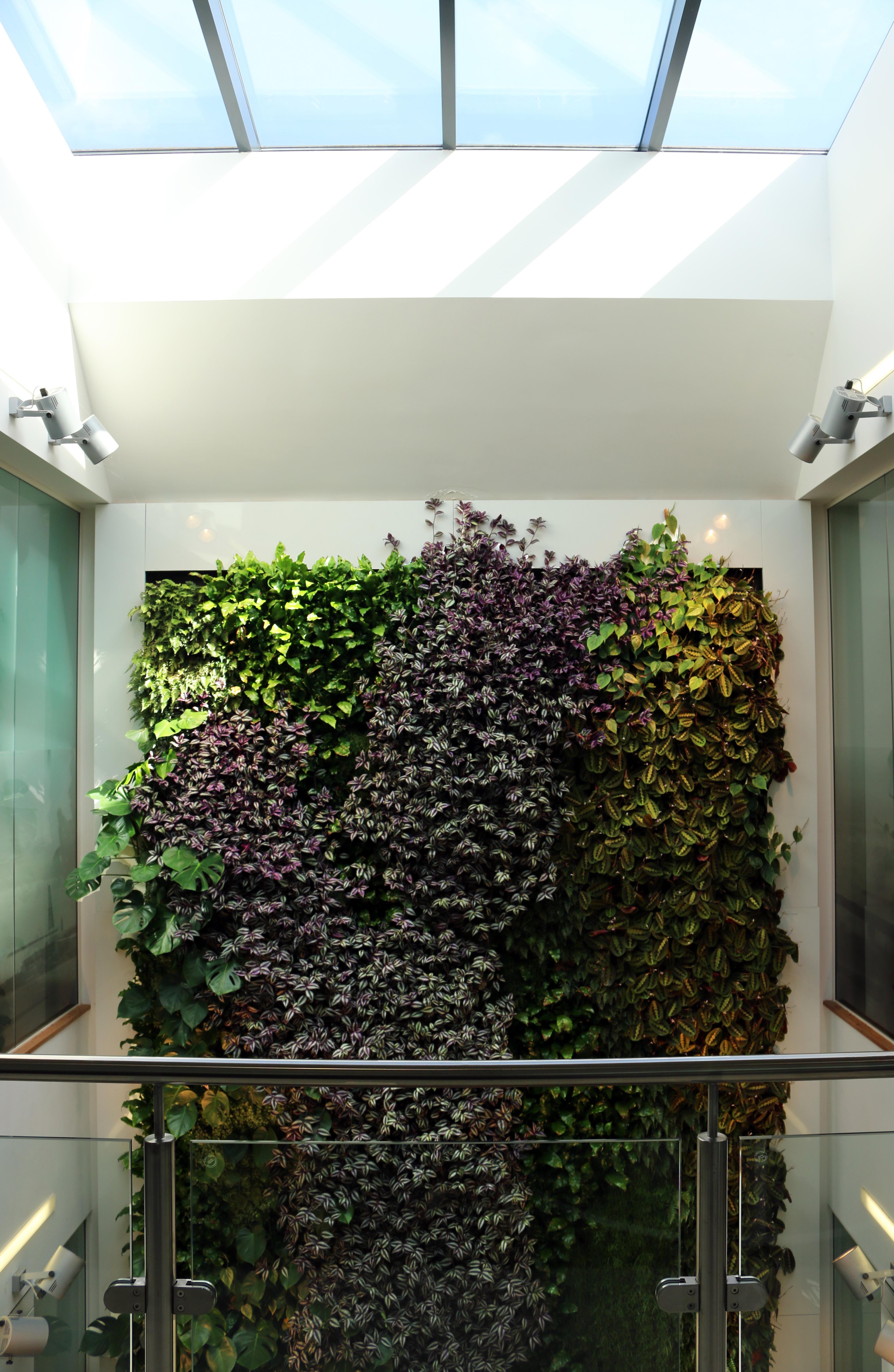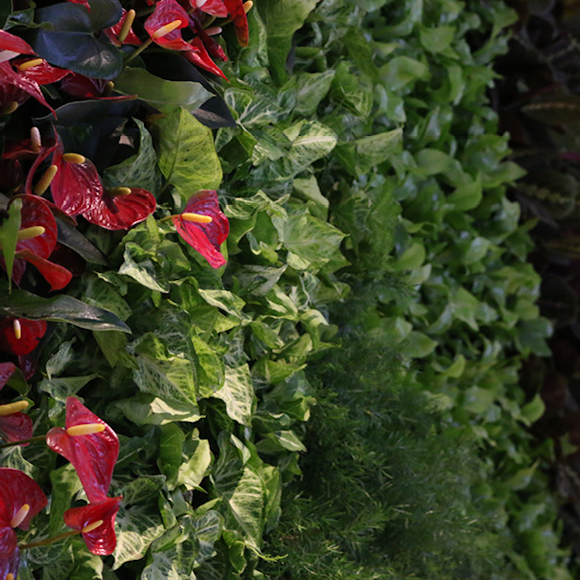Installing a green wall inside your office does a lot more than make a bold eco-friendly statement and add vibrant colour to corporate spaces. You may already know that lush planting enhances positive perception so that clients will think of your business as more successful and welcoming. Research also shows that generous plantlife in the workplace has a positive impact on employee performance, which should ultimately boost in company profits.
Overcoming sick building syndrome (SBS)
It’s all about improving air quality. We breathe in the air in our buildings, absorb the oxygen and exhale carbon dioxide. In the daytime, most plants absorb carbon dioxide and release oxygen through photosynthesis. The effect on us – and your employees – of plants in the workplace of increased oxygen in the air is more wakefulness, elevated concentration and increased output.
Better air, better workforce
Then there’s transpiration, the process by which plants keep themselves cool. During transpiration, plants release moisture. A number of plants together, exactly as you’d find in an interior living wall, increase the humidity of the air. That’s a good thing – they create a humidity level that’s exactly in the human comfort range. This means few complaints of dry skin, dry coughs and sore throats, which in turn means happier staff. And transpiration cools the air too. In fact, according to the US Department of Agriculture, plants can decrease office air temperature by as much as ten degrees. That’s an important factor in reducing carbon footprint and utility bills, as well as providing better comfort levels for employees.
An interior green wall will purify the air in your office, absorbing dust and stripping out toxins such as formaldehyde (found in vinyl, rugs, plastic bags), trichloroethylene and benzene (which can be found in various man-made fibres, paper, inks, paints and solvents). Plants even absorb background noise and improve acoustics. In the modern office, abuzz with humming technology and busy people, noise is a distraction which has an impact on many individuals’ concentration levels. Install interior living walls and the volume of leaf coverage can make a substantial difference to noise levels.
A calmer, happier working environment
Numerous studies over the years have shown the benefits of the natural environment – and plant life in particular – for the human psyche and sense of wellbeing. There is considerable evidence for this. Studies show that artwork featuring natural world views, trees and plants improves behaviour in mental health institutions, while views over gardens have been proven to increase recovery rates for patients in hospitals. The fact is that something about the visual aspects of plants calms, soothes and restores our natural balance. It de-stresses us. And since work can get a little bit stressful from time to time, where better to place living walls made of natural, calming plants?
Research also suggests that extensive planting, such as the interior green wall, can reduce tension and anxiety levels by as much as 37%, fatigue by a similar level, anger and hostility by 44% and depression by 58%. Those are dramatic improvements in employee wellbeing which can lead to better communication, better team working, better performance and productivity and – through increased feelings of satisfaction – lower staff turnover.
So what’s the ultimate effect of interior green walls in your offices? A more powerful performance for your business.
Whether you have a large resort or a small hotel, it is important to leave guests with a positive impression. While a guests overall impression is impacted by every touchpoint, the facilities are of primary importance. The installation of a living wall can have wide-reaching effect to the architecture.
Guests feelings can be formed subconsciously by impacting their five senses.
- Look: Set your hotel apart with a stunning visual feature.
- Smell: Living walls reduce dust in the indoor environment making the air feel fresher.
- Taste: Herbs can be grown in a living wall and used in cocktails or meals.
- Touch: Consider inviting guests to pick flowers from the living wall to take to their room in a small vase.
- Listen: A living wall also acts as a natural sound barrier giving a calming effect.




